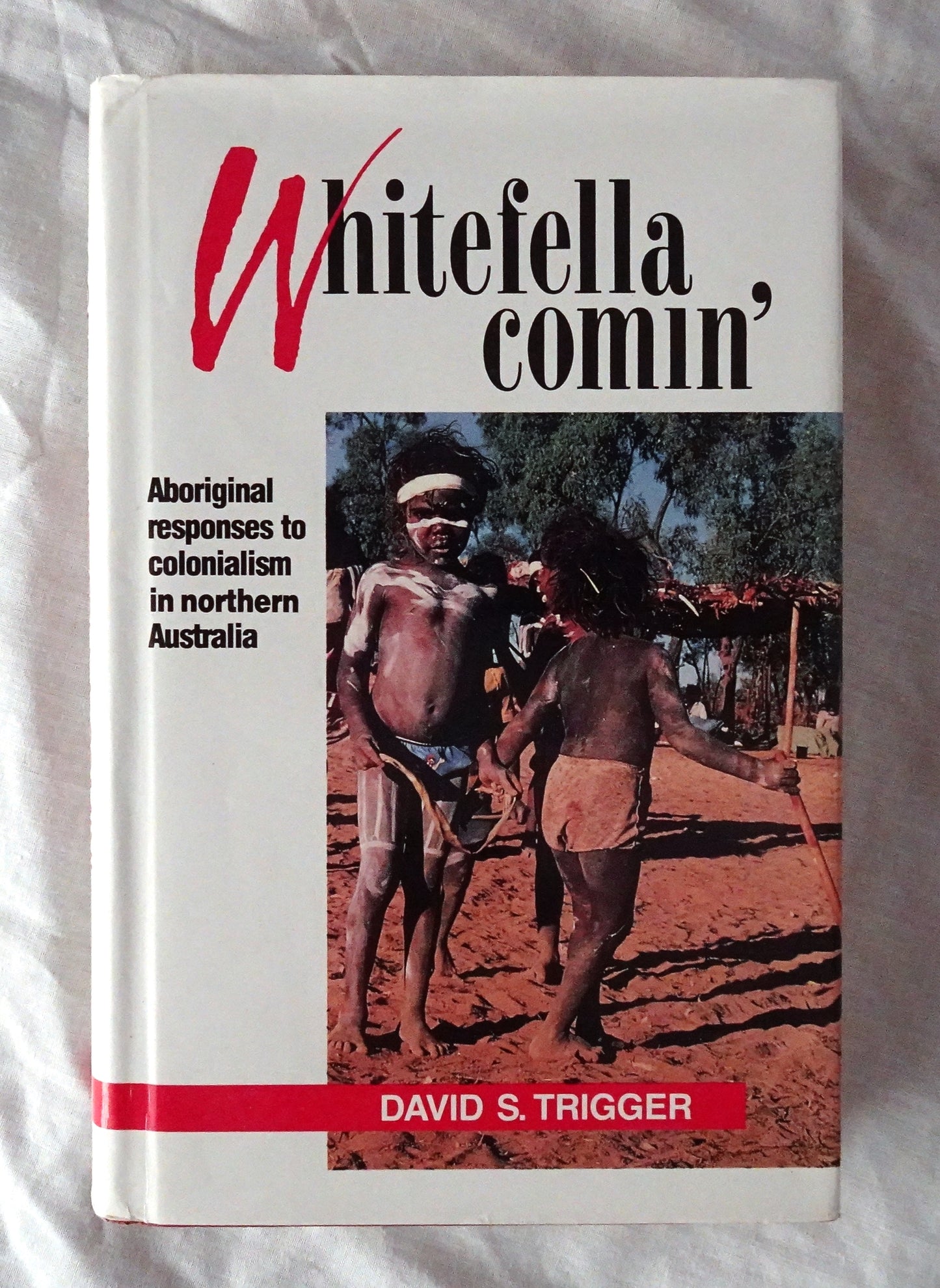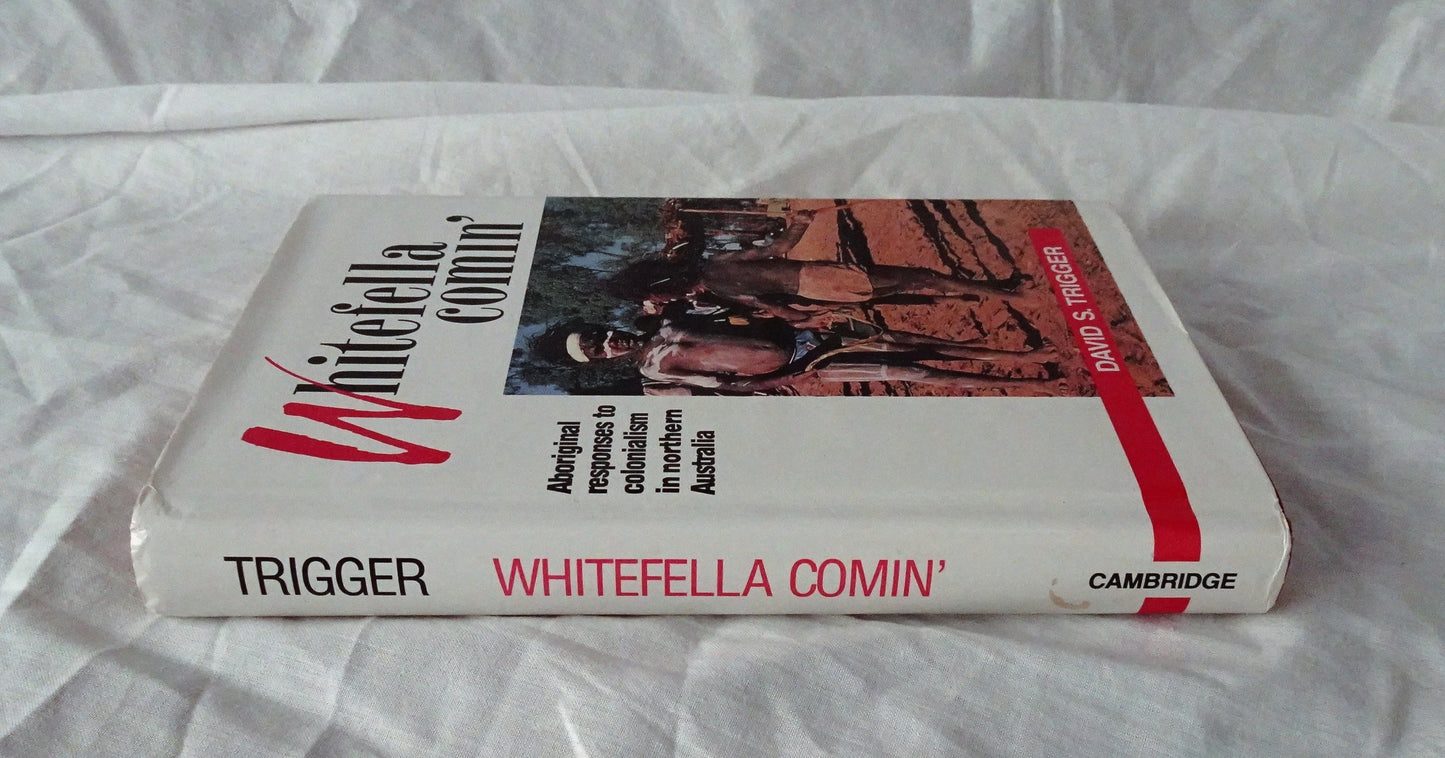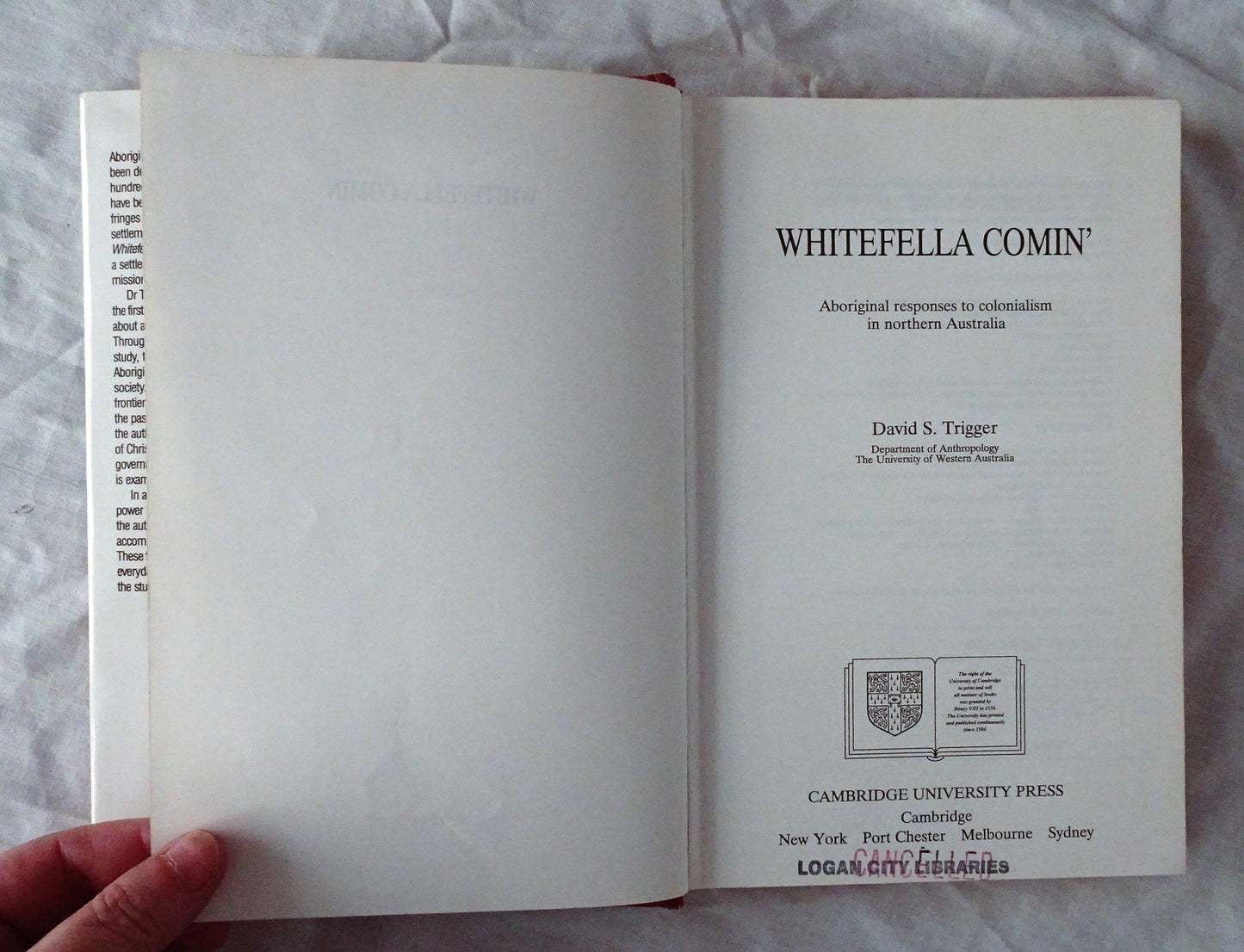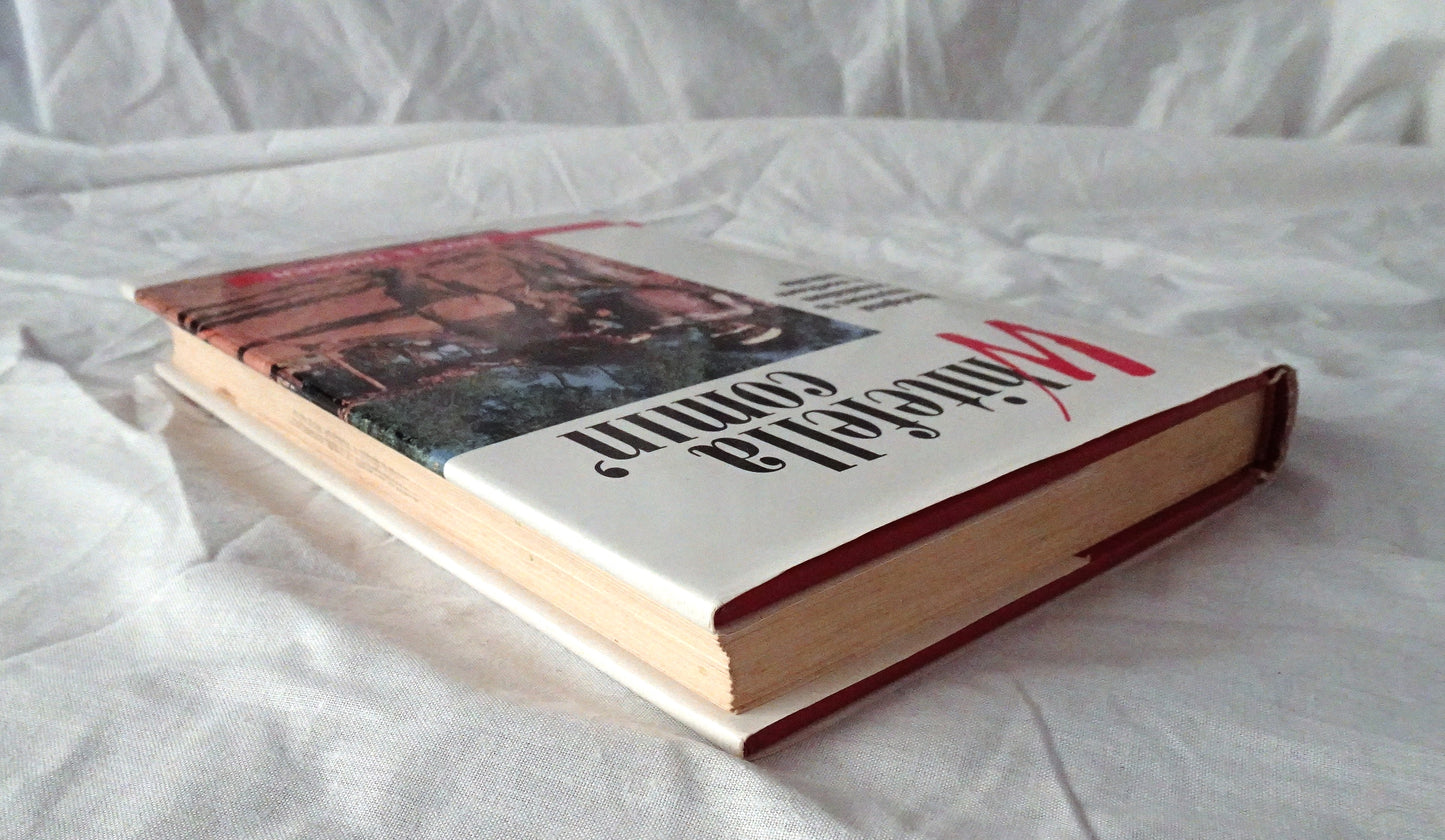Whitefella Comin’ by David S. Trigger
Whitefella Comin’ by David S. Trigger
Pickup available at Private Residence
Usually ready in 2-4 days
Whitefella Comin’
Aboriginal responses to colonialism in northern Australia
by David S. Trigger
Cambridge Queensland Press, 1992, [First Edition], ISBN 052140181X, black and white photographic plates, hardcover, dustjacket
Very Good Condition, minor edge and shelf wear, a little rubbing and bumping to edges and corners, ex-library with sticker to front endpaper, stamps to last page, title page and publishers page, scuffing to inside front cover, dustjacket shows minor edge and shelf wear with minor rubbing and bumping to edges and corners (see photographs)
“ Aboriginal people in Australia’s Gulf Country have been dealing with Whites for more than one hundred years. The politics of Black-White relations have been played out on cattle stations, on the fringes of small towns and in larger mission settlements like the one at the centre of this study. Whitefella Comin’ depicts life at Doomadgee, a settlement administered by Brethran missionaries from the early 1930s until 1983.
Dr Trigger’s portrayal of life at Doomadgee is the first book to be published by an anthropologist about an Aboriginal settlement in Queensland. Through detailed historical and ethnographic study, the author seeks understanding of Aboriginal responses to the intrusions of Australian society. He examines coercion and violence on the frontier, the incorporation of Aboriginal people into the pastoral industry and their reactions to both the authoritarianism and benevolent paternalism of Christian missionaries. The influence of government policies and administrative practices is examined throughout the book.
In addressing the structures and processes of power relations between Aborigines and Whites, the author develops an analysis of resistance and accommodation on the part of Aboriginal people. These findings are based on a rich ethnography of everyday life that makes an original contribution to the study of colonialism.”




















